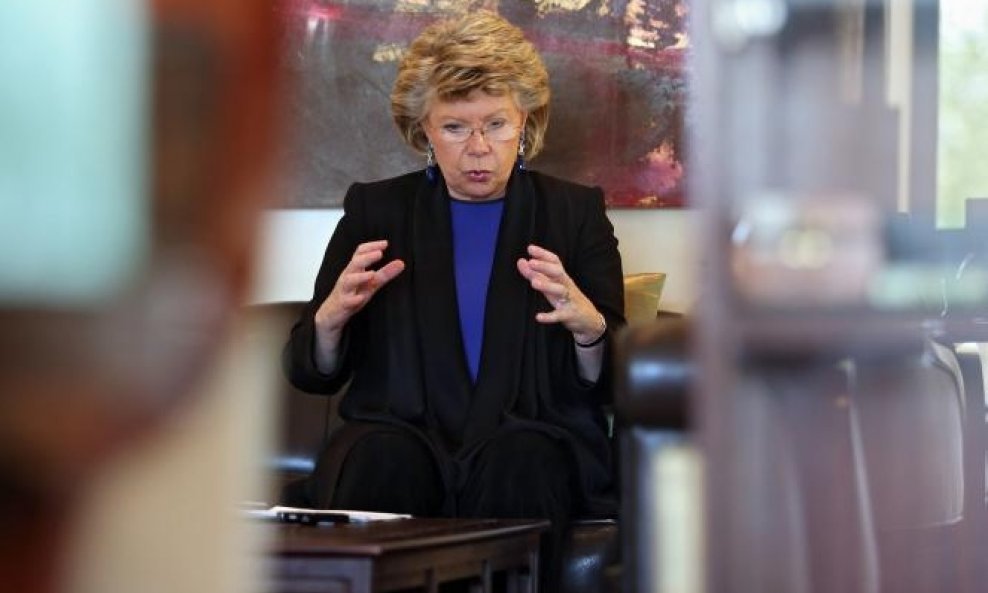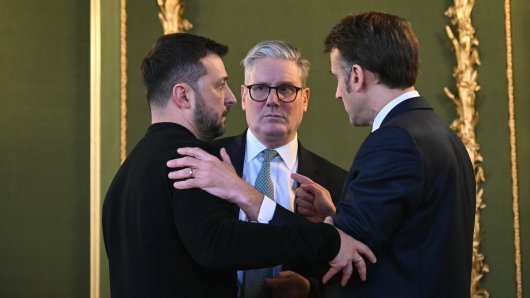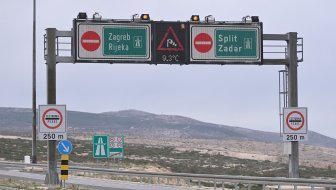European Justice Commissioner Viviane Reding confirmed in Trieste on Monday that the college of European commissioners had approved the initiation of sanctions against Croatia over a contentious law on the limited application of the European Arrest Warrant (EAW) which it is late in aligning.
After many warnings and letters, Commission President Jose Manuel Barroso and I, together with Enlargement Commissioner Stefan Fuele, informed the college of commissioners last Friday and received full backing for any future actions, Reding told a press conference.
Those actions are being prepared and will come quite soon. We will activate the procedure from Article 39 of the accession treaty and this activation is just around the corner, she added.
She was in Trieste at a Citizens Dialogue panel which brought together more than 400 citizens from Italy, Croatia, Slovenia and Austria.
A safeguard clause from Article 39 of Croatia's EU accession treaty envisages measures in the event of failure to comply with the treaty and shortcomings in the implementation and transposition of the European acquis.
Commenting at the request of Croatian reporters the announced sanctions, Reding said the contentious law, dubbed Lex Perkovic, was contrary to European law and that this was about a serious breach of a trust built during Croatia's EU accession negotiations, notably regarding the improvement of the judiciary.
Lex Perkovic limits EAW application to crimes committed after August 2002.
Reding said she had pushed for three years for closing the judiciary chapter in the accession negotiations and for not putting Croatia under post-accession monitoring, reiterating that Croatia amended the contentious law three days before joining the Union even though it had not been discussed during the negotiations.
The EAW law was suddenly changed. I was very unhappy about that. Imagine, you work hard for the country to make progress, you build trust, you say 'We believe you, we are letting you join the EU', and they haven't even joined and the trust was gone, said Reding.
We had been warning that the Croats must not do that, she added, reiterating that the European Commission was the keeper of treaties. She said the goddess of justice was blind, not looking left or right, up or down, only at the law.
Asked by the press to explain why Croatia's changes to the EAW law were being treated differently than Slovenia and the Czech Republic, which had been given much longer deadlines to change the law and no sanctions had been mentioned, Reding said this was not a question of different treatment and that those two countries had been in different situations.
She also said that member states could not refer to another member's wrong action as a precedent to repeat, adding that the EAW law was passed in 2002.
The Czech Republic and Slovenia tried to make an interpretation of the law, poorly transposing it into their national legislation. The European Commission insisted on a correct transposition and the matter was solved, Reding added.
Croatia is in a much more different situation because it transposed the EAW law into its legislation before joining the EU, but the Croats then changed the law unilaterally and at the last moment, she said.
About 100 Croatian citizens took part in the panel, asking Reding mostly about court proceedings in Croatia with the outcome of which they were not happy.






![[VIDEO] Milanović: Svakome tko kaže da Đurđević ima veze s Lex Perković kazat ću da je lažov. Ako je moguće tako lagati, ja ću govoriti da je HDZ lopovska stranka](/media/thumbnail/500x300/1458260.jpeg?cropId=0)




























